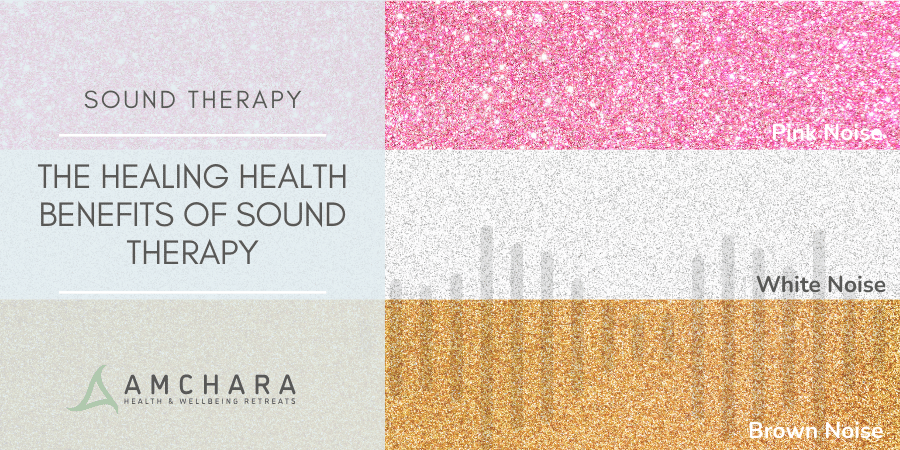Topics covered in this article:
Have you ever thought that the latest eating plan you’ve been following may be affecting the quality of your sleep?
Scientists are becoming increasingly aware that certain nutrients may influence sleep patterns, but it seems that specific eating regimes may also affect how well you sleep.
We always take an evidence-based approach an in this article we’ll take a look at two of the more popular dietary patterns and share with you what the latest research has to reveal about their potential benefits on your sleep quality.
Is Insomnia Affecting Your Quality of Life?
If you are one of the millions of people around the world who suffer from insomnia, you either have difficulty getting to sleep, difficulty maintaining sleep and/or a tendency to wake up really early in the morning.
Apart from the obvious effect this has on quality of life and the social implications such as increased days off work, accidents and relationship problems, insomnia also puts you at higher risk of developing health conditions such as Type 2 diabetes and cardiovascular disease.
There are various methods for improving sleep that may make quite a difference and advice on this can be sought from your local GP.
But your eating patterns are not often part of this discussion, unless you consult with a nutritional therapist or naturopath.
In extreme cases your GP may prescribe sleeping pills, but this is not an ideal long-term solution, so if insomnia is really getting you down, it may be worth taking a closer look at your dietary patterns.
Here’s an overview of two of the most popular eating plans and some insights into how each could be affecting your sleep.
The Mediterranean Approach to Nutrition
A typical Mediterranean Diet is based on a traditional mix of foodstuffs eaten by populations from the Eastern Mediterranean, such as Crete and Southern Italy.
It is generally high in vegetables, legumes, cereals and fruit.
Fish and white meat are often eaten in place of red meat.
Mono-unsaturated oils, such as olive oil, avocado oil and rapeseed oil are also used instead of saturated animal fats like butter and lard.
It also includes moderate red wine intake with meals.
This way of eating has become very popular because of the numerous health benefits associated with it.
The foods eaten maximise the intake of health-promoting ingredients, whilst minimising quantities of ingredients associated with health risks, such as highly processed, salty and sugary foods.
General principles of the Mediterranean diet are:
- Maximise your intake of vegetables, legumes, fruits and whole grains
- Limit red meat consumption – fish and poultry are healthy substitutes
- Where possible use mono-unsaturated oils
- Limit your intake of highly processed ready meals and takeaways
- Eat dairy products in moderation and preferably low fat
- Do not add salt to your food
- Snack on fruit, nuts and seeds rather than cakes, crisps and biscuits
- Drink red wine during meals – but no more than two small glasses a day
- Drink plenty of water and avoid sugary drinks
Scientific research has shown that individuals who follow an ideal Mediterranean diet as closely as possible stand to gain the most health benefits.
Eating the Mediterranean way is thought to reduce the risk of a range of chronic health conditions including:
- Heart disease
- Cancer
- High blood pressure
- Type 2 diabetes
- High cholesterol
- Parkinson’s disease
- Alzheimer’s disease
And now, according to the latest research it seems we can add improved sleep to this list of health benefits.
What the Studies Say
The idea that a particular way of eating could improve sleep was demonstrated in a study published in 2017 by Campanini et al.
The authors looked specifically at adults over the age of 60 and found that adhering to a Mediterranean pattern of eating was associated with a lower risk of changes to sleep duration as well as better sleep quality. (5)
Another large study carried out in 2018 and published in the Journal of Sleep provided further positive results in relation to sleep and the Mediterranean diet.
The authors collected information over a ten year period from the food frequency questionnaires of 2068 people following a Mediterranean diet, in order to clarify the association between diet and insomnia.
The results suggest that a Mediterranean diet is associated with adequate sleep duration, fewer insomnia symptoms, and a decreased likelihood of insomnia accompanied by short sleep. (2)
In a more recent study conducted by Caraci et al. (2019), researchers took information from a large sample of Italian adults, to evaluate the association between sleep quality and adherence to the Mediterranean dietary pattern.
A range of tests were used to assess adherence to the diet and sleep quality alongside food frequency questionnaires.
Of the 1314 people that took part all reported adequate sleep quality, but interestingly the researchers found that, according to a points system, those who adhered more strictly to the Mediterranean dietary patterns had better sleep quality. (4)
The benefits of the Mediterranean diet are not necessarily due to any one particular ingredient, but more likely to be from the combination of minimally processed, whole fresh foods, whole grains, plenty of fruit and vegetables and healthy fats.
This great variety of food provides an appropriate distribution of the many nutrients needed for adequate sleep.
The Ketogenic Approach to Nutrition
The Ketogenic diet is often marketed as a fast fat burner, due to its ability to shift the body from burning carbohydrates as fuel to utilising fat instead.
There is a significant difference between the Mediterranean style eating pattern, which encourages the consumption of plenty of fresh fruit and vegetables and the Ketogenic diet, which does the opposite.
The Ketogenic pattern of eating involves consuming high fat foods, together with moderate portions of protein and very low levels of carbohydrate (typically under 50g a day and often between 20g and 30g).
If you choose to eat the Ketogenic way you can expect to eat 55-60% fat, 30-35% protein and 5-10% carbohydrates on a daily basis.
The fundamental principle of the Ketogenic diet is to severely restrict dietary carbohydrate consumption and substantially raise dietary fat, in order to push the body into producing ketone bodies as an energy source, rather than glucose.
The drastic reduction in carbohydrates results in a metabolic state of nutritional ketosis. (6)
What happens is that restricting carbohydrates causes a fall in glucose levels and reduces plasma insulin production which leads to a reduction in fat production and accumulation.
The Ketogenic diet has its roots in the treatment of epilepsy.
It is well documented within medical literature as an effective therapy for reducing seizures and has been used successfully since 1921. (8)
Nowadays, a very low carbohydrate or Ketogenic diet is most commonly known for its use in obesity treatment, and many of the subsequent health benefits seen after following a Ketogenic diet are thought to be due to weight loss.
However, in recent years the Ketogenic diet has become more popular not just in overweight or obese individuals, but also amongst those aspiring to improve health and longevity.
An increasing body of evidence suggests that very low carbohydrate diets could have a therapeutic role in a range of diseases.
Benefits attributed to eating the ‘keto’ way include:
- Rapid weight loss
- Reduction in appetite
- Reduced risk of cardiovascular disease
- Improvement in glucose control and insulin sensitivity in Type 2 diabetes
- Reduction in epileptic seizures
- Reduction in the development of acne
- Improved sleep
The effects of the ketogenic diet on sleep are not entirely clear, but some theories have been put forward by scientists who have examined the changes in sleep patterns associated with very low carbohydrate diets.
What the Studies Say
Despite plenty of information linking the ketogenic diet with the health benefits listed above (particularly weight loss), there are only a handful of studies investigating how very low carbohydrate diets may affect sleep.
Changing nutrient intakes in such an extreme way is very likely to affect sleep patterns and those who embark on the Ketogenic approach to eating may find their sleep suffers to begin with.
Forcing your body into ketosis may initially affect levels of the stress hormone cortisol which can impact on sleep, but once the body adjusts, the state of ketosis may potentially improve sleep.
An early study published in 1998 in the journal Paediatrics, which investigated the effects of a Ketogenic diet on morbidly obese adults with sleep abnormalities, found that sleep abnormalities significantly decreased on the Ketogenic diet.
This was associated with rapid weight loss. (9)
In another study, this time on healthy non-obese men who normally slept well, it was found that even short term consumption of a very low carb diet (just 48 hours) brought improvements in sleep.
The authors reported an increase in deep sleep compared to the control group. (10)
More recently, a small trial published in the journal Nutrients followed 20 obese patients over a four month period, during which time they took part in a Ketogenic diet.
Results from the study showed a significant improvement in daytime sleepiness. (12)
Sleep quality has also been found to improve in children with epilepsy that have been treated with the Ketogenic diet. (11)
So How Does It Improve Sleep?
Some research suggests that ketosis has a positive effect on brain function, particularly on a chemical called adenosine, which has been found to promote sleep. (14)
Adenosine is more active during the day promoting wakefulness and alertness, and decreasing during the sleep recovery period.
Therefore, it is thought to act as a regulator of sleep, which may be why individuals following the Ketogenic way of eating report better quality sleep.
The sleep benefits of nutritional ketosis may also be attributed to weight loss, which itself lowers the risk of various sleep disorders including sleep apnoea.
Another indirect way that might explain improvements in sleep quality could be that the Ketogenic eating plan raises energy, which naturally leads to increased exercise; evidence shows that regular exercise improves sleep. (15)
Take home message
If you’re looking for rapid weight loss then a ketogenic diet may tick that box but as far as improved sleep is concerned, there’s not really enough evidence yet to guarantee it.
What and when you eat affects your circadian rhythms, as well as your gut health and energy levels.
It also affects your hormones and the biochemicals that stimulate you or send you to sleep.
All these factors may influence how long and how well you sleep, which is very much dependent on the individual.
What is clear is that the Mediterranean diet is probably much easier to follow in the long term than the Ketogenic approach to eating, which is very restrictive.
The Mediterranean eating plan promotes healthy well balanced nutrition, with an emphasis on whole unprocessed foods, variety and plenty of water, which overall appears to have the best evidence for a long and healthy life.
Are you struggling with insomnia and not sure what nutritional approach to take?
At Amchara we have a team of expert Personalised Health practitioners who can help you.
Why not take advantage of a complimentary consultation by clicking on the image below.
READ THIS NEXT:




